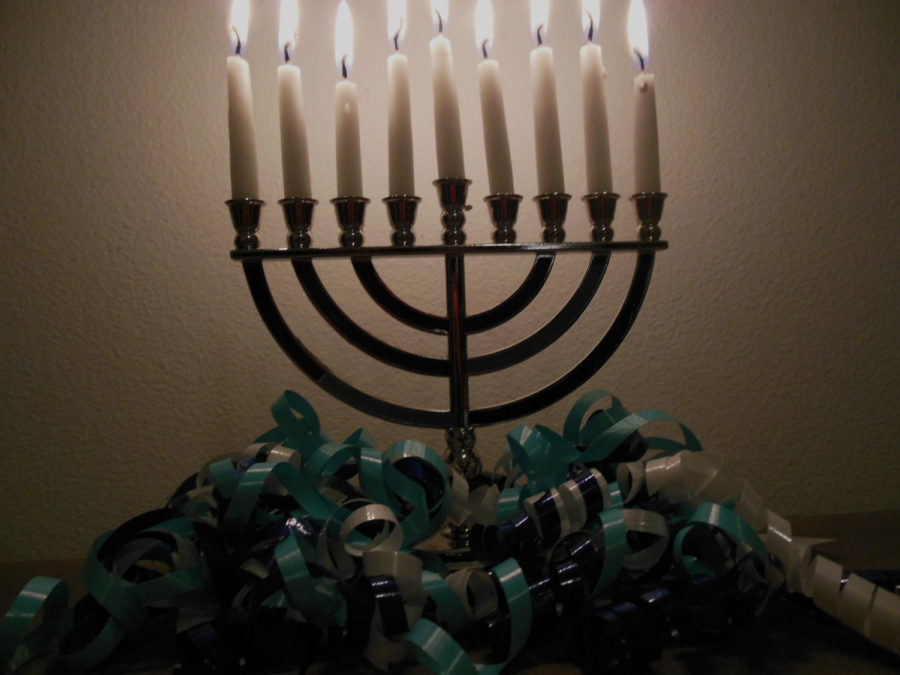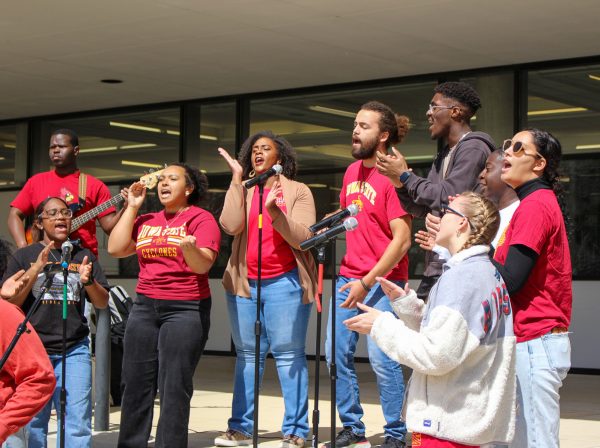Students share experiences celebrating Hanukkah
Hanukkah, a Jewish holiday, will take place this year from Dec. 18 to Dec. 26.
This year Hanukkah will coincide with the start of Winter Break, giving Jewish students the chance to celebrate with their families and communities at home.
Hanukkah is an eight-day celebration in the Jewish faith that commemorates the rededication of the Second Temple in Jerusalem.
“Most of the Hanukkah action is only at nightfall,” Eitan Tuchin, a freshman majoring in computer science, stated in an email. “When nightfall comes for those eight days, the candles are lit, and on one or a couple of those days, there’s a Hanukkah party.”
Contrary to common perception, Tuchin stated, holidays such as Yom Kippur and Shavuot are more important Jewish holidays because of their biblical origin compared to Hannukah, which is of Rabbinical origin.
“Since [Hanukkah] is around Christmas and easy to capitalize on since it is a gift-giving holiday, it’s become a popular association,” Kaylie James, a senior majoring in psychology, said. “Judaism loves the really depressing holidays, or maybe we’ve just gone through some depressing shit and know how to throw a good party after prayer.”
Another common misconception about Hanukkah revolves around its spelling. Hanukkah is a transliteration of Hebrew, James said, so it can be spelled how you want.
“There is an old joke about how you can ask three rabbis how to spell Hanukkah, and they will come back with five answers,” James said.
“If it weren’t for the Jewish club here on campus, Chabad Jewish Student Life, it would be difficult for a student to celebrate Hanukkah because they would need to take the incentive and buy all the necessary things required to perform a real Hanukkah,” Tuchin stated.
James said depending on the lunar calendar, Hanukkah will sometimes occur during fall or winter break.
“When that happens, I get to spend the holiday with my family and friends,” James said. “I am really excited to go to synagogue and gab with some people I haven’t seen in a while. Pig out at the Oneg.”
Hanukkah will begin Dec. 18 and end Dec. 26.
“This year, Hanukkah falls on winter break, so we can celebrate the holiday without having to worry about finals, which will be great,” Tuchin stated.
A common tradition that reveals the meaning of Hanukkah is eating fried food. This includes latkes, which are fried potato patties, and jelly donuts.
“We do this because of the miracle of Hanukkah, which is about that last jug of olive oil and the way it lit the Menorah for a total of eight days by itself,” Tuchin stated.
James, who is a Reform Jew from the South, said the experience of celebrating Hanukkah could vary due to the different sects of Judaism and the different cultures that come with it.
“My dad isn’t Jewish,” James said. “The one thing he wanted in the marriage was to maintain the tradition of decorating a Christmas tree, so the Hanukkah bush was born.”
James said having the Jewish community helped a lot growing up, not in a religious sense, but because it was an environment that was free of southern rules and thought.
“It is definitely weird to go from having a strong community to knowing maybe two Jews,” James said.
Celebrating Jewish holidays while at Iowa State can be difficult. Tuchin said Hanukkah, specifically, is a much easier holiday to celebrate to its fullest extent since there are no restrictions involved.
James said the nearest reform synagogue is in Des Moines, making it hard to go to services.
“I have met very few Jews in college, so it has been very hard to build a community to celebrate with,” James said. “I have hosted Passover dinners and made Kugel for my goyim (non-Jewish people). The only thing in Iowa that connects me to Judaism is my identity.”
James said she encourages Jews to celebrate with non-Jewish friends since it feels like coming back to a piece of home.
“We are tied together by the stories we tell every year,” James said, “or just a mutual understanding of the significance that we are still around.”
Editor’s Note: Reporting contributed by Reese Copich.
Your donation will support the student journalists of the Iowa State Daily. Your contribution will allow us to purchase equipment, send our student journalists to conferences and off-set their cost of living so they can continue to do best-in-the-nation work at the Iowa State Daily.

















